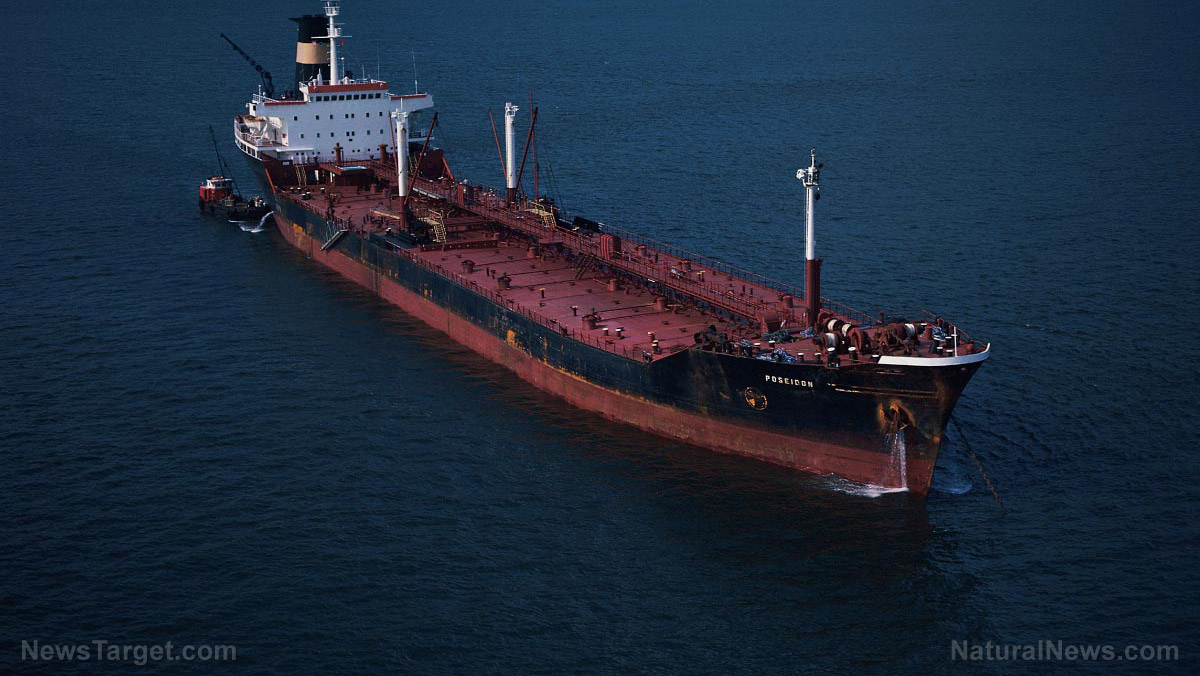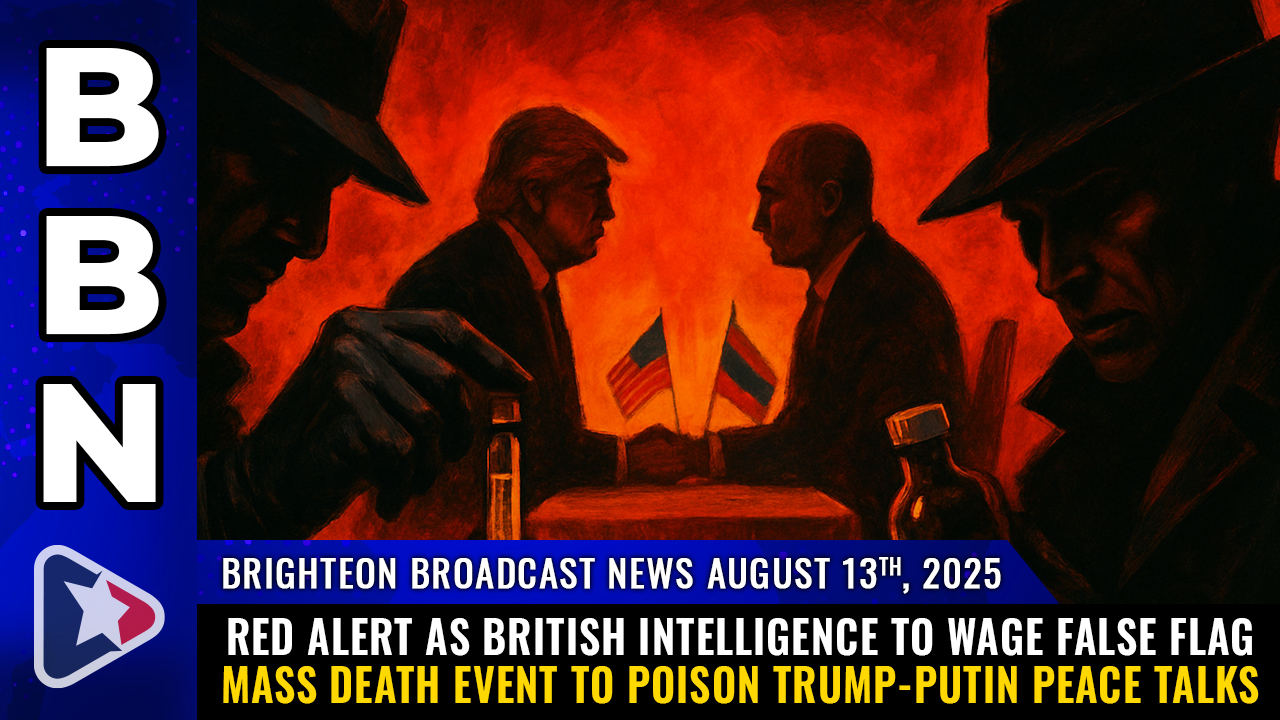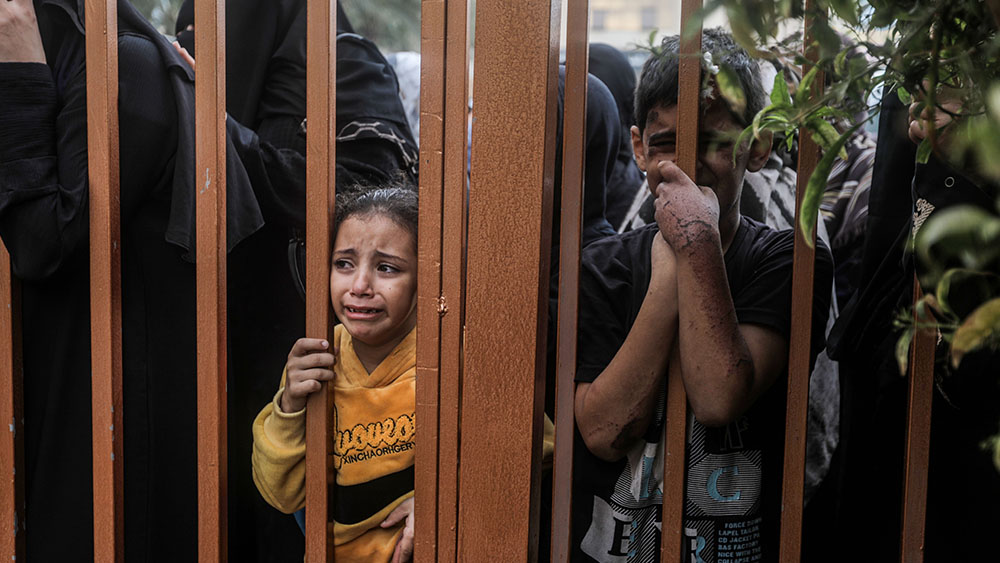 Parler
Parler Gab
Gab
- Russia's spy agency (SVR) claims British intelligence is plotting covert attacks on Moscow's "shadow fleet" of oil tankers, possibly with Ukrainian help. The goal, they allege, is to trigger NATO intervention by staging accidents or blocking key shipping routes.
- To bypass Western sanctions, Russia uses old, poorly maintained tankers registered under obscure flags (like Comoros or Gabon). These ships operate outside normal regulations, raising environmental risks if they leak or sink.
- The SVR suggests the West might sabotage a tanker to justify NATO action or fake an oil spill to label the fleet a safety hazard and seize more ships. Some analysts think Russia is preemptively blaming the West in case a real accident happens.
- U.S. and EU sanctions (like price caps and insurance bans) have cut Russia's oil shipments by over half since early 2024. Some officials have debated more aggressive steps, like boarding suspicious ships, but legal issues have delayed action.
- Russia is now escorting shadow fleet tankers with military jets, treating them as a security priority. Hardliners in Russia are calling for retaliation against British ships. Any major incident, real or staged, could escalate NATO-Russia tensions further.
Russia's claims: Sabotage and false flags
According to a statement released on Aug. 4, the SVR accused British intelligence of plotting two possible scenarios:- Blocking a key shipping route – By damaging a tanker in a maritime bottleneck, the U.K. could create a crisis that justifies NATO intervention.
- Staging a major fire – A sabotage attack at a port in a Russia-friendly country could be framed as an accident, allowing Western nations to declare the shadow fleet a safety hazard and restrict its movements.
Western efforts to curb Russian oil revenues
The U.S. and EU have already imposed strict sanctions on Russian oil, including price caps and bans on insurance for tankers carrying Russian crude. According to the Brookings Institution, these measures have slashed the shadow fleet's oil shipments from over 50 million barrels per month to less than 20 million since early 2024. Some Western officials have reportedly considered more direct action, such as boarding and inspecting suspicious tankers, but legal concerns have stalled these plans. The SVR's report suggests that a major incident, like an oil spill, could provide the justification needed for such measures. The SVR claims that Ukrainian forces would carry out the alleged attacks to avoid direct Western blame. If exposed, Kyiv, rather than London or Washington, would take the political fallout. This mirrors past accusations, such as Russia's claims that the West orchestrated the 2022 Nord Stream pipeline explosions, an incident initially blamed on Moscow before investigations pointed elsewhere.A growing maritime standoff
Russia has already signaled its readiness to defend the shadow fleet, escorting tankers with military jets in what analysts see as an acknowledgment that these ships are now a national security priority. Meanwhile, hardliners in Russia have called for retaliation. Fighterbomber, a prominent pro-war blogger, suggested that British tankers should "suffer an accident" in response. (Related: Mike Adams and Mike Farris on navigating the uncharted future.) If the SVR's claims are true, or even if they're just a preemptive warning, the situation raises the risk of further maritime confrontations. A major incident, whether accidental or deliberate, could escalate tensions between NATO and Russia. For now, the West continues to tighten sanctions, while Moscow looks for ways to keep its oil flowing. Whether sabotage plots are real or imagined, the battle over Russia's shadow fleet is far from over. Visit Chaos.news for more updates on the Russia-Ukraine war. Watch the video below as Health Ranger Mike Adams talks about why Europe wants a high casualty war with Russia. This video is from the Health Ranger Report channel on Brighteon.com.More related stories:
Trump slaps India with 25% tariffs over Russia ties, sparking trade war fears. PURE INSANITY: Trump says Washington "prepared" for potential nuclear war with Russia. EU submits to 15% Trump tariffs in new U.S. trade deal. U.S. escalates economic war on Russia by deploying financial sanctions against secondary parties who conduct business with Moscow. Sources include: RT.com Telegraph.co.uk Yahoo.com Brighteon.comBy Finn Heartley // Share
ChatGPT’s dangerous diet advice sends man to hospital with bromide poisoning
By Cassie B. // Share
Israel in secret talks to forcibly displace Palestinians to war-torn South Sudan
By Cassie B. // Share
Trump’s banking order targets political deplatforming but leaves payment giants unchecked
By Willow Tohi // Share
Global food prices surge to two-year high amid supply crunches
By Willow Tohi // Share
Governments continue to obscure COVID-19 vaccine data amid rising concerns over excess deaths
By patricklewis // Share
Tech giant Microsoft backs EXTINCTION with its support of carbon capture programs
By ramontomeydw // Share
Germany to resume arms exports to Israel despite repeated ceasefire violations
By isabelle // Share










